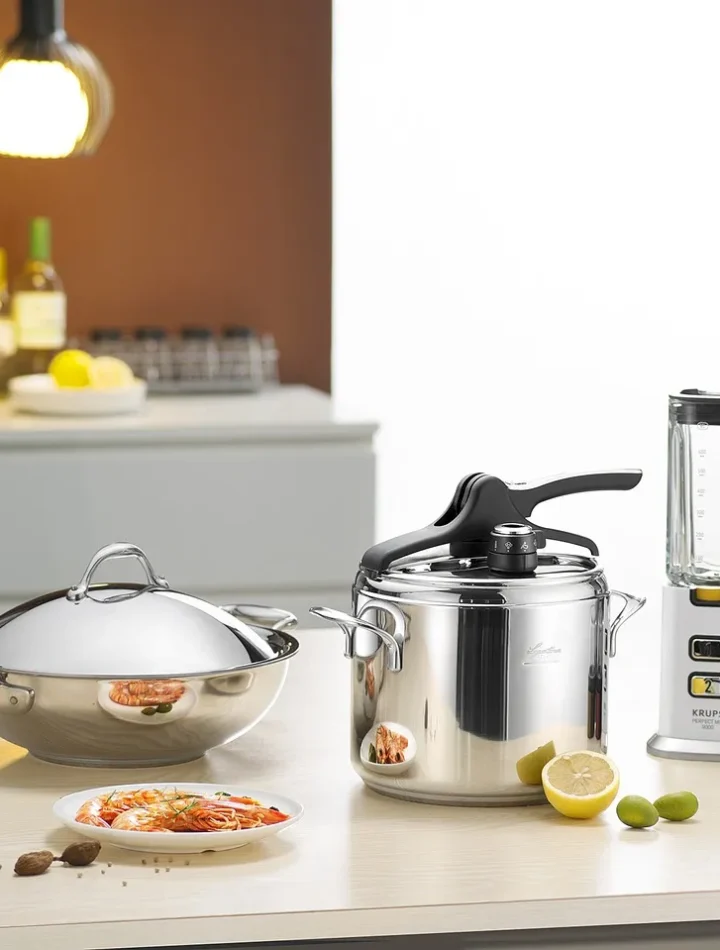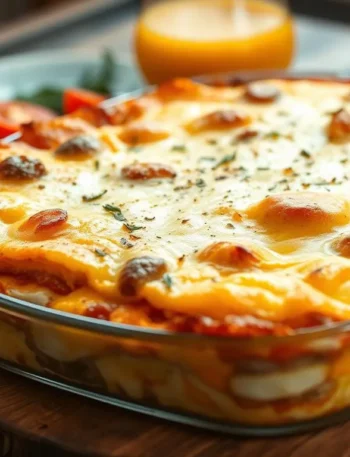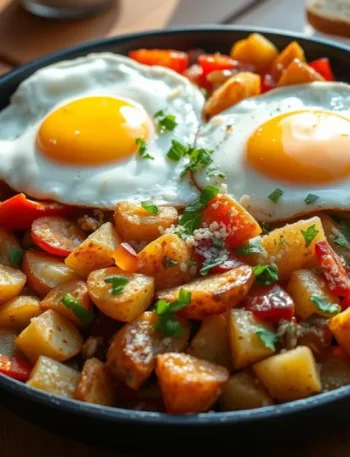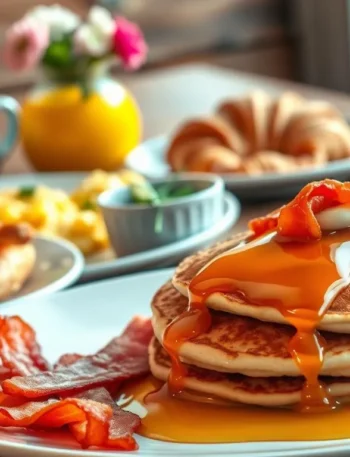In the world of cooking, stainless steel utensils are top-notch. They are a must-have for every kitchen. These tools have changed how we cook, making meal prep easier for both home cooks and chefs.
Stainless steel utensils are incredibly versatile. They help you cook everything from veggies to meats perfectly. Their design and function make them essential for any kitchen.
Choosing the right cooking tools can really boost your cooking skills. Stainless steel tools improve your cooking and make meal prep a breeze.
Table of Contents
Understanding the Benefits of Stainless Steel Cooking Utensils
Stainless steel cooking utensils have changed how we cook. They are safe, durable, and versatile. They are great for both home cooks and professional chefs. Let’s look at why food-grade stainless steel is a top pick for kitchens today.
Chemical Resistance and Food Safety
The safety of your kitchen depends on your utensils. Food-grade stainless steel utensils are top-notch for safety. They stop chemical reactions and keep your food safe and tasty.
- Prevents reaction with acidic ingredients
- Maintains food’s original flavor profile
- Resists corrosion from various food types
Durability and Longevity
Buying high-quality stainless steel utensils is a smart move. They last a long time and can handle tough cooking. Your kitchen arsenal will remain strong and reliable.
| Durability Characteristic | Stainless Steel Performance |
|---|---|
| Scratch Resistance | Excellent |
| Heat Tolerance | High |
| Corrosion Resistance | Superior |
Cost-Effectiveness Over Time
Stainless steel utensils might cost more upfront. But they save you money in the long run. They last longer, so you don’t need to replace them often. Choosing quality non-reactive cookware is a smart investment.
“Quality is remembered long after price is forgotten.” – Unknown
Essential Features of Food-Grade Stainless Steel
Choosing the right kitchen tools is key. Food-grade stainless steel is top-notch for this. It’s perfect for both utensils and cookware.
There are different grades of food-grade stainless steel. Each has its own special traits. In kitchens, you’ll often find:
- 304 Stainless Steel: The most versatile grade
- 316 Stainless Steel: Superior corrosion resistance
- 18/10 Stainless Steel: Highest nickel content for durability
Professional chefs look for certain qualities in stainless steel. They want:
| Feature | Importance |
|---|---|
| Corrosion Resistance | Prevents metal degradation and food contamination |
| Heat Tolerance | Withstands high cooking temperatures |
| Non-Reactive Surface | Maintains food’s original flavor |
Chromium and nickel content are key components that determine the quality of food-grade stainless steel. These metals create a protective layer. This layer prevents rust and ensures long-lasting performance in demanding kitchen environments.
“Quality stainless steel is the backbone of professional culinary equipment” – Culinary Institute of America
When selecting food-grade stainless steel for your kitchen, always verify that the material is NSF International certified. This certification ensures the steel adheres to strict food safety standards, providing peace of mind that your kitchen tools are safe to use. For more detailed information on NSF certifications, visit NSF’s official site. High-quality chef equipment is essential in any kitchen—not only for its durability and performance but also for its ability to meet safety standards and support your cooking needs.
Top Stainless Steel Utensils Every Kitchen Needs
Having the right tools in your kitchen can change how you cook. Professional chef equipment is not just for restaurants. It can make your home cooking better. Let’s look at the top stainless steel utensils that will make your kitchen great.
Essential Basic Cooking Tools
Every home cook needs a set of basic stainless steel tools. These tools make cooking easier and more fun. They are the foundation of a well-stocked kitchen:
- Stainless steel spatulas for flipping and turning
- Cooking spoons with long handles
- Sturdy tongs for gripping and serving
- Slotted spoons for draining
Specialized Kitchen Implements
These specialized tools will take your cooking to the next level. They add precision to your cooking skills:
| Utensil | Primary Use |
|---|---|
| Whisk | Beating eggs, mixing batters |
| Ladle | Serving soups and sauces |
| Pasta Server | Transferring pasta from pot to plate |
Professional-Grade Options
For serious home cooks, these high-end stainless steel tools are a must. They bring restaurant-quality performance to your kitchen:
- Multi-purpose kitchen scissors
- Precision measuring spoons
- Professional-grade peeler
- Offset spatula for perfect finishing
“The right tools can turn any home cook into a kitchen maestro.” – Professional Chef Marcus Rodriguez
Investing in quality stainless steel utensils means you’re getting durable, long-lasting tools. These tools will support your culinary adventures for years.
Comparing Stainless Steel to Other Kitchen Materials
Choosing the right kitchen tools is key for both home cooks and chefs. Stainless steel is a top pick for its many benefits. It outshines other materials in durability and performance.
Each kitchen material has its own special qualities. Let’s see how stainless steel stacks up against others:
- Silicone Utensils: Flexible but less durable
- Wooden Tools: Traditional look with limited heat resistance
- Plastic Utensils: Affordable but prone to melting
| Material | Durability | Heat Resistance | Longevity |
|---|---|---|---|
| Stainless Steel | Excellent | High (up to 500°F) | 20+ years |
| Silicone | Good | Limited (up to 400°F) | 5-7 years |
| Wooden | Fair | Low (can char) | 3-5 years |
| Plastic | Poor | Very Low | 1-2 years |
“Invest in quality kitchen tools that will serve you for years to come.” – Professional Chef Marcus Rodriguez
Stainless steel utensils are unmatched in performance. They don’t rust, keep their shine, and distribute heat well. Buying these tools means better cooking for a long time.
Proper Care and Maintenance Tips
Protecting your stainless steel cooking accessories needs special care. It’s more than just cleaning. Your kitchen tools are an investment that needs attention.
To keep your dishwasher-safe cooking accessories in great shape, you need to know how to maintain them. Regular care helps your kitchen tools last longer and look professional.
Essential Cleaning Strategies
- Use warm water and mild dish soap for routine cleaning
- Avoid abrasive scrubbers that might scratch surfaces
- Dry utensils immediately after washing to prevent water spots
- Select non-chlorine cleaning agents for stainless steel
Smart Storage Solutions
Protect your rust-resistant utensils with smart storage:
- Store in dry, ventilated areas
- Use protective dividers between tools
- Hang utensils when possible to prevent scratching
Damage Prevention Techniques
| Potential Risk | Prevention Method |
|---|---|
| Extreme Temperature Changes | Allow utensils to cool gradually |
| Chemical Exposure | Avoid prolonged contact with acidic substances |
| Physical Damage | Use dedicated utensil holders |
“Proper maintenance transforms good kitchen tools into lifetime companions.” – Professional Chef’s Wisdom
By following these care tips, your stainless steel cooking accessories will stay in top condition for years.
Professional Chef’s Guide to Stainless Steel Tools
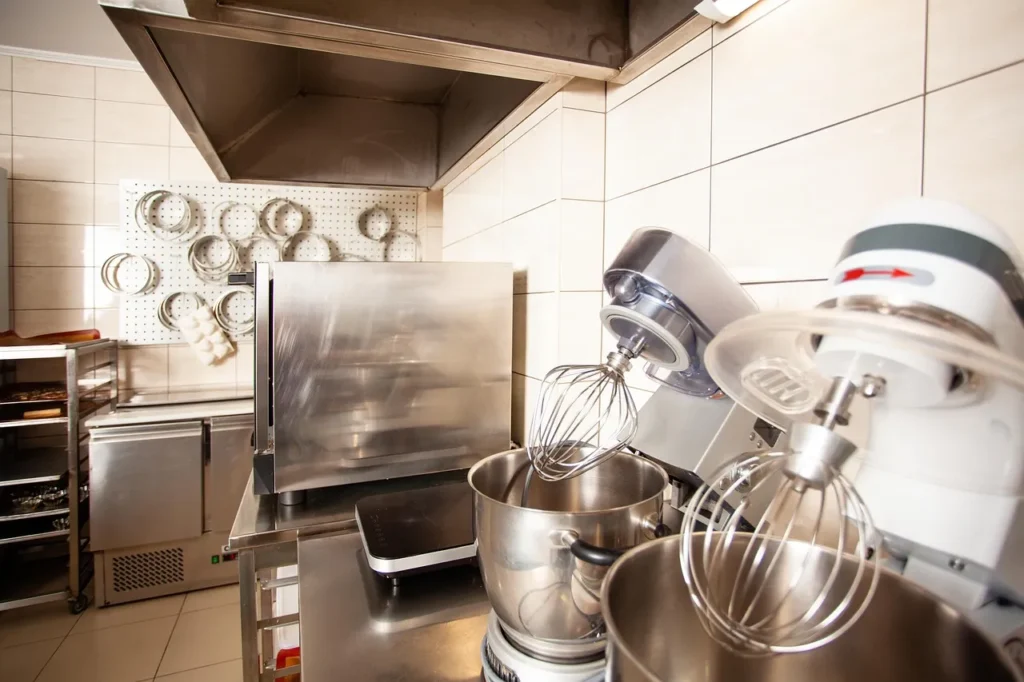
Professional chefs know that the right tools are key to success. Stainless steel tools are top-notch, providing top performance and reliability in busy kitchens.
“A great chef’s toolkit is like an artist’s palette – precision matters in every detail.” – Chef Thomas Keller
When choosing stainless steel utensils, chefs look for a few important things:
- Balanced weight distribution
- Seamless construction
- Heat-resistant handles
- Corrosion-resistant surfaces
Here are some must-have stainless steel tools for chefs:
| Utensil Type | Professional Usage | Key Benefit |
|---|---|---|
| Stainless Steel Tongs | Grilling, Plating | Precise Food Handling |
| Offset Spatula | Cake Decorating, Sauce Spreading | Smooth Manipulation |
| Slotted Spoon | Straining, Skimming | Liquid Separation |
Buying high-quality stainless steel tools changes how you cook. These tools improve your performance, last long, and add precision to your dishes.
Heat Resistance and Cooking Performance
Stainless steel cooking tools are top-notch for managing heat in kitchens. They perform well in many cooking methods. This makes them key for both home cooks and chefs.
Understanding Temperature Tolerance
Stainless steel utensils can handle very cold and very hot temperatures. They stay strong up to 500°F. This means they work well for:
- High-heat searing
- Oven baking
- Stovetop cooking
- Grilling applications
Handling Hot Foods Safely
Stainless steel tools are a must in professional kitchens. They distribute heat well and don’t break down. Heat-resistant cooking tools keep your utensils safe and your food perfect.
“Stainless steel is the chef’s most trusted material for handling extreme temperatures with precision and safety.” – Culinary Institute of America
Safety Considerations
Always follow these safety tips when using stainless steel utensils:
- Use heat-resistant gloves when handling hot tools
- Allow utensils to cool before cleaning
- Inspect tools regularly for wear and tear
- Store in a dry, cool environment
Knowing how stainless steel handles heat can make your cooking better. It also means your kitchen tools will last longer.
Choosing the Right Stainless Steel Grade
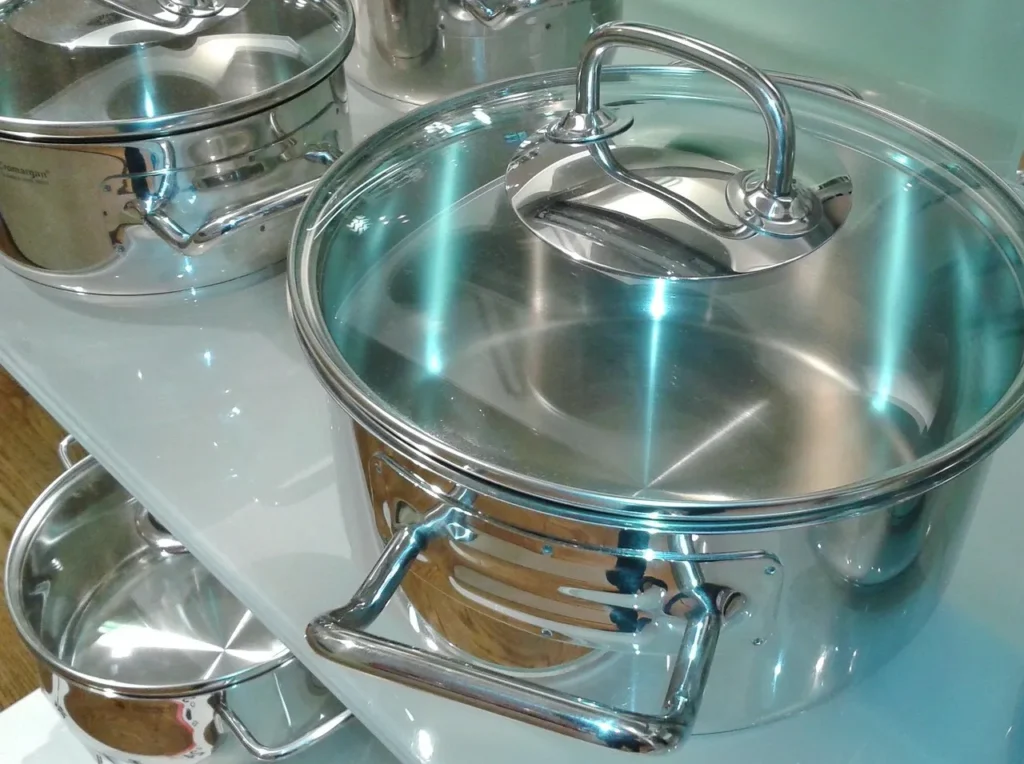
Choosing the right food-grade stainless steel for your kitchen tools is key. It’s all about understanding the different metals. The grade of stainless steel greatly affects how well your cooking utensils perform and last.
Stainless steel grades are marked by two numbers. These numbers show the metal’s chromium and nickel content. This info tells you a lot about the metal’s quality and how long it will last.
- 18/10 Grade: Highest quality with 18% chromium and 10% nickel
- 18/8 Grade: Slightly lower nickel content
- 18/0 Grade: Least expensive with no nickel
When looking for durable kitchen tools, go for food-grade stainless steel with more nickel. The more nickel, the better the metal’s resistance to corrosion and quality.
“Quality kitchen tools are an investment in your culinary experience” – Professional Chef’s Handbook
| Steel Grade | Chromium % | Nickel % | Best Use |
|---|---|---|---|
| 18/10 | 18% | 10% | High-end cookware |
| 18/8 | 18% | 8% | Professional kitchen tools |
| 18/0 | 18% | 0% | Budget-friendly utensils |
Always look for NSF or FDA certification when buying stainless steel kitchen tools. This ensures they are safe for food and of high quality.
Environmental Impact and Sustainability
Stainless steel cooking accessories are leading the way in sustainable kitchens. Choosing eco-friendly options can greatly reduce our environmental impact. They also keep our kitchens running smoothly.
Sustainable kitchen tools bring big environmental benefits. They go beyond regular cooking tools. Stainless steel utensils are a key choice for those who care about the planet.
Recyclability: A Green Kitchen Solution
Stainless steel is highly recyclable. Its special properties make it great for the environment. These tools offer:
- 100% recyclability without losing quality
- Less waste in making them
- Lower carbon emissions than other materials
Eco-Friendly Manufacturing Processes
Today’s eco-friendly cooking accessories are made with new methods. These focus on:
- Using less energy to make them
- Using fewer chemicals
- Finding responsible sources for materials
“Sustainability isn’t just a trend—it’s a commitment to our planet’s future.” – Environmental Design Expert
Reducing Kitchen Waste
Buying high-quality stainless steel utensils helps cut down kitchen waste. These tools last for many years. They reduce the need for constant replacements and lessen harm to the environment.
Your kitchen can become a sustainability powerhouse with thoughtful, long-lasting stainless steel cooking accessories.
Conclusion
Stainless steel cooking utensils are more than just kitchen tools. They make cooking better and last longer. Investing in quality stainless steel utensils opens up new cooking possibilities.
Choosing the right stainless steel cooking utensils boosts your kitchen skills. They are durable, heat-resistant, and safe for food. Both pros and home cooks see the big benefits in making tasty meals easily.
Stainless steel kitchen tools are good for the planet and your cooking. They are recyclable and built to last. This means less waste and better cooking every day.
Adding premium stainless steel utensils to your kitchen is a smart move. They help improve your cooking, make meal prep easier, and last for years. Choose stainless steel for a better kitchen experience.
FAQ
Are stainless steel cooking utensils safe for all types of cooking?
Yes, stainless steel cooking utensils are safe for all cooking methods. They can handle high temperatures and won’t react with food. This makes them perfect for stovetop, oven, and grilling.
Unlike other materials, stainless steel doesn’t leach chemicals into your food. It also doesn’t change the taste of your food. This makes them great for health-conscious cooks.
How do I prevent scratching my stainless steel utensils?
To avoid scratches, don’t use abrasive cleaners like steel wool. Instead, use soft sponges and gentle dish soap. Non-abrasive cleaning cloths are also good.
When storing, use dividers or hang them. This way, they won’t scratch other metal tools.
Can stainless steel utensils go in the dishwasher?
Most stainless steel utensils are dishwasher-safe. But, always check the manufacturer’s instructions. Hand washing can help keep them shiny and prevent dulling.
What makes stainless steel different from other cooking utensil materials?
Stainless steel is durable, rust-resistant, and non-reactive. It doesn’t absorb odors or harbor bacteria. It also withstands high temperatures without warping or breaking.
Its quality makes it a favorite among home cooks and chefs.
How long do stainless steel cooking utensils typically last?
With proper care, stainless steel utensils can last 10-20 years or more. They are durable and resistant to corrosion. This means they don’t need to be replaced often, making them a good value for your kitchen.
Are there different grades of stainless steel for cooking utensils?
Yes, stainless steel has different grades. Food-grade stainless steel includes 18/10, 18/8, and 18/0 grades. The 18/10 grade is the highest quality, known for its corrosion resistance and durability.
Can stainless steel utensils be used with non-stick cookware?
Stainless steel utensils can scratch non-stick surfaces. But, many modern tools have smooth edges that are gentle on non-stick. For extra protection, use silicone or wooden utensils on non-stick pans.
How do I restore the shine to my stainless steel utensils?
To restore shine, use a mix of white vinegar and water or a stainless steel cleaner. For water spots or discoloration, make a paste with baking soda and water. Always dry them well after cleaning to keep them shiny.

